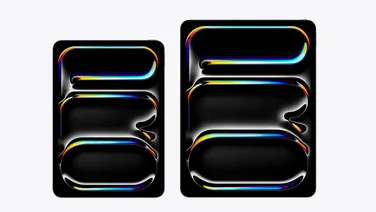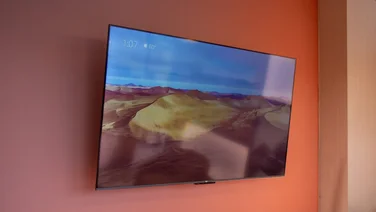News

Some Sky customers are getting Disney Plus and HBO Max for free
Sky adds three new streaming apps - for nothing - to its Sky Ultimate TV package, but it's not all good news
-
 Amazon’s new Fire TVs are available in the UK at enticing introductory offer prices, but not for long You can now get your hands on the updated Fire TV 2-Series, 4-Series and Omni QLED tellies, and they’re discounted until 10 February
Amazon’s new Fire TVs are available in the UK at enticing introductory offer prices, but not for long You can now get your hands on the updated Fire TV 2-Series, 4-Series and Omni QLED tellies, and they’re discounted until 10 February -
 A new way to enjoy Freely on ANY TV is coming, and it’s coming very soon The Manhattan Aero 4K TV Streamer with Freely will be available from February and will provide access to Freely services on any television
A new way to enjoy Freely on ANY TV is coming, and it’s coming very soon The Manhattan Aero 4K TV Streamer with Freely will be available from February and will provide access to Freely services on any television -
 Apple revives AirTags with upgraded capabilities Refreshed AirTags have longer Precision Find range but come in at the same price
Apple revives AirTags with upgraded capabilities Refreshed AirTags have longer Precision Find range but come in at the same price -
 Sony and TCL’s new home entertainment joint venture could spell big trouble for their competitors Two of the most recognisable players in the TV industry are joining forces for a new home entertainment venture set to commence operations in April next year
Sony and TCL’s new home entertainment joint venture could spell big trouble for their competitors Two of the most recognisable players in the TV industry are joining forces for a new home entertainment venture set to commence operations in April next year -
 CES 2026: Eufy unveils new flagship video doorbell Eufy's latest smart video doorbell gets a new design and a single "panoramic" 180-degree camera
CES 2026: Eufy unveils new flagship video doorbell Eufy's latest smart video doorbell gets a new design and a single "panoramic" 180-degree camera -
 CES 2026: Hisense doubles down on colour with new RGB Mini LED Evo and Micro LED TVs Our Tech Editor was in Las Vegas to see Hisense unveil new panel tech that looks set to break TV colour boundaries
CES 2026: Hisense doubles down on colour with new RGB Mini LED Evo and Micro LED TVs Our Tech Editor was in Las Vegas to see Hisense unveil new panel tech that looks set to break TV colour boundaries -
 HP's Eliteboard G1a is a desktop PC that harks back to the 1980s Forget all those swanky 2-in-1 laptops and gaming machines - the most interesting release in HP’s lineup is a computer built into a keyboard
HP's Eliteboard G1a is a desktop PC that harks back to the 1980s Forget all those swanky 2-in-1 laptops and gaming machines - the most interesting release in HP’s lineup is a computer built into a keyboard -
 Dell brings back XPS laptop brand … and teases a cheaper XPS 13 - but it isn’t resuscitating the budget Inspiron
Dell brings back XPS laptop brand … and teases a cheaper XPS 13 - but it isn’t resuscitating the budget Inspiron -
 The TCL Note A1 is an intriguing notepad tablet TCL's Nxtpaper Pure-powered digital notepad is an Android tablet designed as a digital note taker
The TCL Note A1 is an intriguing notepad tablet TCL's Nxtpaper Pure-powered digital notepad is an Android tablet designed as a digital note taker -
 Huawei FreeClip 2 announced, alongside MatePad 11.5 S and Mate X7 foldable Huawei’s jewellery-style open-air headphones get a big overhaul, there’s a new Mate X7 smartphone, an unusual-looking new Wi-Fi system and an updated MatePad 11.5 S tablet
Huawei FreeClip 2 announced, alongside MatePad 11.5 S and Mate X7 foldable Huawei’s jewellery-style open-air headphones get a big overhaul, there’s a new Mate X7 smartphone, an unusual-looking new Wi-Fi system and an updated MatePad 11.5 S tablet -
 Apple just upgraded the iPad Pro and MacBook Pro with M5 silicon Apple's iPad Pro models get M5 upgrade, boosting graphics and AI performance, but not much else has changed
Apple just upgraded the iPad Pro and MacBook Pro with M5 silicon Apple's iPad Pro models get M5 upgrade, boosting graphics and AI performance, but not much else has changed -
 Amazon announces new Fire TVs and the cheapest Fire TV Stick 4K yet Amazon's new Fire TV Stick Select ditches Android in favour of Vega OS - and shaves a tenner off its price tag, too
Amazon announces new Fire TVs and the cheapest Fire TV Stick 4K yet Amazon's new Fire TV Stick Select ditches Android in favour of Vega OS - and shaves a tenner off its price tag, too